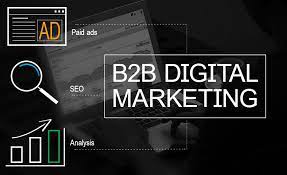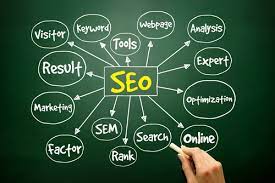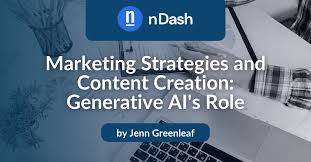Understanding SEO Content Marketing: A Comprehensive Guide
In today’s digital age, standing out in the vast online landscape can be challenging. This is where SEO content marketing comes into play. With the right strategies, businesses can enhance their online presence, drive more traffic to their websites, and ultimately boost their bottom line. But what exactly is SEO content marketing, and how can it benefit your business?
What is SEO Content Marketing?
SEO (Search Engine Optimisation) content marketing is a strategic approach that combines the principles of SEO with high-quality content creation. The primary goal is to produce engaging, valuable content that ranks well on search engines like Google. By doing so, businesses can attract organic traffic and reach potential customers who are actively searching for information related to their products or services.
The Importance of Keyword Research
A crucial element of SEO content marketing is keyword research. This involves identifying the terms and phrases that potential customers are using when searching for products or services similar to yours. By incorporating these keywords naturally into your content, you increase the chances of your website appearing in search engine results pages (SERPs).
Creating High-Quality Content
While keywords are important, they should never compromise the quality of your content. Search engines prioritise user experience and reward websites that provide valuable and relevant information. Therefore, it’s essential to focus on creating high-quality content that addresses the needs and interests of your audience.
Types of Content
- Blog Posts: Regularly updated articles that provide insights, tips, or news related to your industry.
- E-books: In-depth guides or reports that offer comprehensive information on a particular topic.
- Videos: Engaging visual content that can explain complex topics or showcase products effectively.
- Infographics: Visual representations of data or processes that are easy to digest and share.
The Role of Backlinks
An often-overlooked aspect of SEO content marketing is building backlinks. Backlinks are links from other reputable websites pointing to your site. They act as a vote of confidence in your content’s credibility and authority. By earning high-quality backlinks through guest blogging or partnerships, you can significantly improve your site’s search engine ranking.
The Benefits of SEO Content Marketing
- Increased Visibility: By ranking higher in search results, more potential customers will find your business online.
- Sustainable Traffic: Unlike paid advertising which stops when you stop paying, organic traffic continues as long as your rankings remain strong.
- Brand Authority: Consistently providing valuable information helps establish trust and authority within your industry.
- Bigger Audience Reach: Effective use of different types of content allows you to reach diverse audience segments across various platforms.
The Future of SEO Content Marketing
The world of SEO is constantly evolving with changes in algorithms and consumer behaviour trends. Staying updated with these changes ensures continued success in attracting organic traffic through well-crafted strategies tailored specifically towards meeting user intent while leveraging emerging technologies such as AI-driven analytics tools for deeper insights into performance metrics.
The key takeaway? Combine creativity with data-driven decisions for optimal results! Embrace innovation but never lose sight on delivering true value through quality storytelling — because at its core lies what makes any great campaign unforgettable!
Essential FAQs on SEO and Content Marketing: A Comprehensive Guide
- How to use content marketing for SEO?
- Is SEO considered content marketing?
- Does SEO help with content marketing?
- What is SEO content marketing?
- How do I create SEO content?
- How do I promote SEO content?
- What are 3 main areas of SEO?
- What are the 5 components of SEO?
- How does SEO help content?
- How important is SEO for content marketing?
- Is SEO a type of content marketing?
- What are the 3 types of SEO?
- Why is content marketing good for SEO?
- What are examples of SEO marketing?
- What are the 7 types of SEO?
- What are the 4 types of SEO?
How to use content marketing for SEO?
To leverage content marketing for SEO effectively, businesses must focus on creating high-quality, relevant content that aligns with their target audience’s interests and search intent. Conducting thorough keyword research to identify the terms and phrases potential customers are using is crucial. Integrating these keywords naturally into the content helps improve search engine visibility. Additionally, producing diverse types of content such as blog posts, videos, and infographics can enhance engagement and attract a wider audience. Building backlinks from reputable websites further boosts credibility and authority in the eyes of search engines. By combining strategic content creation with SEO best practices, businesses can increase their online visibility, drive organic traffic, and ultimately achieve their marketing goals.
Is SEO considered content marketing?
The relationship between SEO and content marketing is often a topic of discussion among digital marketers. While SEO and content marketing are distinct strategies, they are closely intertwined and complement each other. SEO focuses on optimising a website’s technical aspects to improve its visibility in search engine results, while content marketing involves creating valuable and engaging content to attract and retain a target audience. In essence, SEO can be considered a crucial component of content marketing, as it ensures that the content reaches its intended audience effectively by enhancing its visibility and accessibility online. Therefore, while they serve different functions, SEO plays a significant role in supporting the goals of content marketing by driving organic traffic and improving overall online presence.
Does SEO help with content marketing?
The relationship between SEO and content marketing is symbiotic, with each complementing the other to drive success in the digital realm. SEO plays a pivotal role in content marketing by ensuring that high-quality content is not only created but also optimised for search engines. By incorporating relevant keywords, meta tags, and backlinks, SEO helps content reach a wider audience and improve its visibility in search engine results. In essence, SEO acts as the bridge that connects valuable content to the right audience, making it an indispensable ally in any effective content marketing strategy.
What is SEO content marketing?
“SEO content marketing is a strategic approach that combines the principles of Search Engine Optimisation (SEO) with the creation of valuable and engaging content. It focuses on producing high-quality material that not only resonates with the target audience but also ranks well on search engines like Google. By incorporating relevant keywords and providing informative content, businesses can improve their online visibility, attract organic traffic, and ultimately drive conversions. In essence, SEO content marketing is about crafting compelling narratives that not only capture the attention of users but also align with search engine algorithms to enhance a website’s overall performance.”
How do I create SEO content?
Creating SEO content involves a strategic approach that combines keyword research, high-quality writing, and a deep understanding of your target audience. To create SEO content effectively, start by conducting thorough keyword research to identify relevant terms and phrases that your audience is searching for. Integrate these keywords naturally into your content while ensuring that the information you provide is valuable, engaging, and informative. Consider the format of your content, whether it’s a blog post, video, or infographic, and tailor it to meet the needs and preferences of your audience. By focusing on user intent and providing quality content that addresses their queries, you can create SEO content that not only ranks well in search engines but also resonates with your readers.
How do I promote SEO content?
Promoting SEO content is a crucial step in maximising its impact and reaching your target audience effectively. To promote SEO content successfully, consider leveraging various channels such as social media platforms, email newsletters, and industry-specific forums to increase visibility. Engage with your audience by sharing valuable insights, encouraging discussions, and responding to comments or queries. Additionally, collaborate with influencers or industry experts to amplify your content’s reach and credibility. Monitoring performance metrics, refining strategies based on data insights, and consistently updating and repurposing content can further enhance its visibility and relevance in the ever-evolving digital landscape.
What are 3 main areas of SEO?
When it comes to SEO, there are three main areas that play a crucial role in determining a website’s search engine ranking and visibility. The first area is on-page SEO, which involves optimising individual web pages with relevant keywords, quality content, meta tags, and internal linking structure to improve their search engine performance. The second area is off-page SEO, which focuses on building a website’s authority through backlinks from reputable sources, social media signals, and other external factors that contribute to its credibility in the eyes of search engines. Lastly, technical SEO encompasses the optimisation of website infrastructure for better crawling and indexing by search engine bots, ensuring factors like site speed, mobile-friendliness, and structured data markup are in place for optimal performance. Mastering these three key areas is essential for a comprehensive SEO strategy that drives organic traffic and boosts online visibility.
What are the 5 components of SEO?
Understanding the fundamental components of SEO is essential for any successful digital marketing strategy. The five key components of SEO include keyword research, on-page optimisation, off-page optimisation, technical SEO, and user experience. Keyword research involves identifying relevant search terms to target in your content. On-page optimisation focuses on structuring your website content and meta tags to improve search engine visibility. Off-page optimisation involves building backlinks from reputable sites to boost your site’s authority. Technical SEO ensures that your website is easily crawlable and indexable by search engines. Finally, user experience plays a vital role in retaining visitors and encouraging engagement on your site. By mastering these components, businesses can enhance their online presence and attract valuable organic traffic.
How does SEO help content?
SEO plays a crucial role in enhancing the visibility and reach of content online. By implementing SEO strategies such as keyword research, on-page optimisation, and link building, businesses can ensure that their content is not only discovered by search engines but also ranks higher in search results. This means that when users search for relevant topics or keywords, well-optimised content has a better chance of appearing prominently, driving organic traffic to the website. Ultimately, SEO helps content by making it more accessible to the target audience, increasing its chances of being seen, shared, and ultimately leading to valuable conversions for the business.
How important is SEO for content marketing?
The importance of SEO for content marketing cannot be overstated. SEO plays a vital role in ensuring that your content reaches its intended audience effectively. By optimising your content with relevant keywords, meta tags, and other SEO best practices, you increase the visibility of your content in search engine results. This, in turn, drives organic traffic to your website and enhances your brand’s online presence. Without a solid SEO strategy, even the most compelling and valuable content may go unnoticed in the vast digital landscape. Therefore, integrating SEO into your content marketing efforts is essential for maximising reach, engagement, and ultimately, conversions.
Is SEO a type of content marketing?
The relationship between SEO and content marketing is often a topic of discussion among digital marketers. While SEO (Search Engine Optimisation) and content marketing are distinct strategies, they are closely intertwined. SEO focuses on improving a website’s visibility in search engine results, primarily through technical optimisation and keyword targeting. On the other hand, content marketing involves creating valuable and engaging content to attract and retain a target audience. In essence, SEO can be considered a crucial component of content marketing, as it helps drive organic traffic to the high-quality content that businesses produce. By aligning SEO efforts with content marketing strategies, businesses can maximise their online presence and reach a wider audience effectively.
What are the 3 types of SEO?
When it comes to SEO, there are three main types that businesses should consider implementing to improve their online visibility and ranking. The first type is on-page SEO, which involves optimising individual web pages with relevant keywords, meta tags, and high-quality content. Off-page SEO, the second type, focuses on building backlinks from reputable websites to increase domain authority and credibility. Lastly, technical SEO deals with the behind-the-scenes aspects of a website, such as site speed, mobile-friendliness, and structured data markup. By incorporating all three types of SEO strategies effectively, businesses can enhance their online presence and attract more organic traffic to their websites.
Why is content marketing good for SEO?
Content marketing is essential for SEO because it serves as the foundation for a successful online presence. High-quality content that is relevant, informative, and engaging not only attracts and retains the attention of your target audience but also signals to search engines like Google that your website is a valuable resource. By consistently producing valuable content that incorporates relevant keywords and follows SEO best practices, businesses can improve their search engine rankings, increase organic traffic, and ultimately enhance their visibility and credibility online. In essence, content marketing complements SEO efforts by providing the substance that search engines seek when determining which websites to display prominently in search results.
What are examples of SEO marketing?
Examples of SEO marketing encompass a wide range of strategies and tactics aimed at improving a website’s visibility and search engine ranking. Some common examples include keyword optimization, where relevant keywords are strategically incorporated into website content to attract organic traffic. Another example is link building, which involves acquiring backlinks from reputable sites to enhance a website’s authority. Additionally, creating high-quality and engaging content such as blog posts, videos, and infographics that align with user search intent is a fundamental aspect of SEO marketing. Ultimately, successful SEO marketing involves a holistic approach that combines technical expertise, content creation, and strategic promotion to drive sustainable organic traffic growth.
What are the 7 types of SEO?
When it comes to SEO, understanding the different types is crucial for a comprehensive digital marketing strategy. The 7 types of SEO encompass various aspects of website optimisation and content creation to improve search engine rankings and drive organic traffic. These include on-page SEO, off-page SEO, technical SEO, local SEO, mobile SEO, voice search SEO, and e-commerce SEO. Each type focuses on specific elements such as keyword research, backlink building, website structure, local listings, mobile responsiveness, voice search optimisation, and product visibility for online stores. By utilising a combination of these SEO types effectively, businesses can enhance their online presence and attract more qualified leads to their websites.
What are the 4 types of SEO?
When it comes to SEO, there are four main types that businesses should be aware of: on-page SEO, off-page SEO, technical SEO, and local SEO. On-page SEO focuses on optimising individual web pages to rank higher and earn more relevant traffic. Off-page SEO involves building backlinks and online reputation management to boost a website’s authority. Technical SEO deals with the backend elements of a website to improve its crawling and indexing by search engines. Lastly, local SEO targets geographically specific searches to help businesses attract local customers effectively. Understanding and implementing these different types of SEO strategies can significantly impact a website’s visibility and success in the competitive online landscape.




